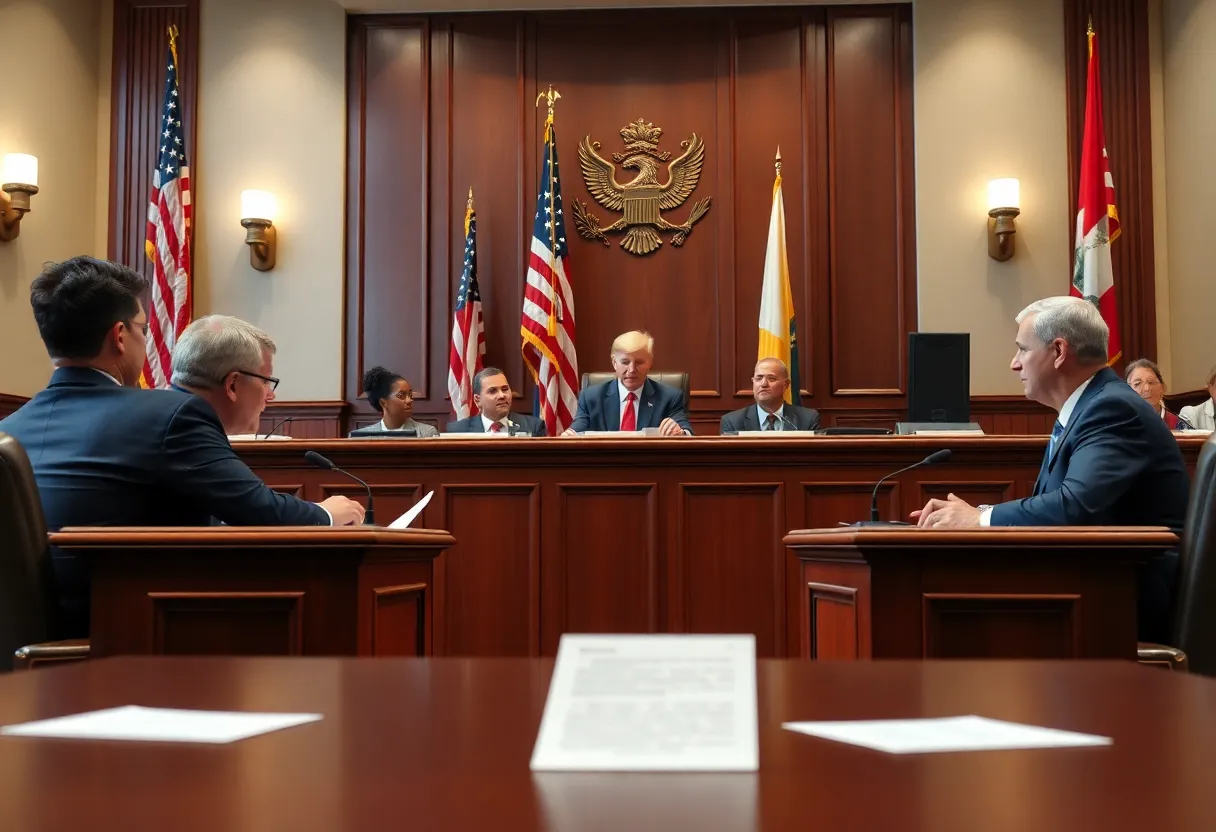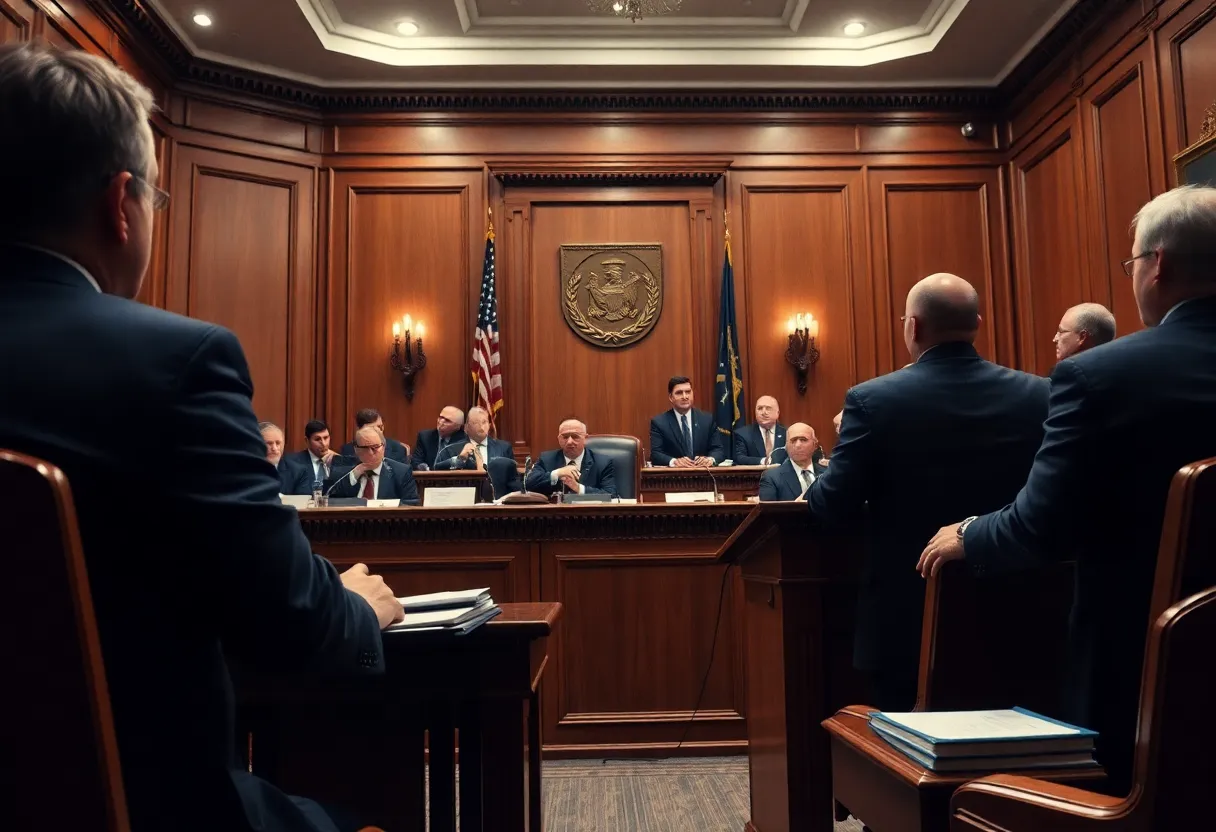News Summary
Recent court decisions have temporarily blocked the Trump administration’s efforts to eliminate diversity, equity, and inclusion programs. Judge Adam Abelson questioned the constitutionality of the policies, while the Supreme Court upheld protections for a government ethics watchdog. The rulings indicate a significant pushback against sweeping policy changes, as various legal challenges emerge regarding immigration, health care, and government funding. With ongoing litigation, the judiciary’s stance suggests a commitment to oversight and compliance in federal governance.
Recent Court Rulings Provide Temporary Relief Against Trump Administration Policies
In a series of significant court rulings, the Trump administration’s efforts to roll back programs aimed at promoting diversity, equity, and inclusion (DEI) have been temporarily halted. Judge Adam Abelson has put a stop to proposed cuts to DEI contracts and the attempt to fire a government ethics watchdog amidst ongoing lawsuits from various states.
Judicial Pushback Against DEI Cuts
Judge Abelson’s ruling particularly focused on the vagueness of the DEI-related policies which the administration aimed to enforce. The judge suggested that these policies might infringe upon the First Amendment rights of federal employees. This was a direct response to legal action initiated by the city of Baltimore, highlighting a growing trend of challenges against the Trump administration’s federal policy changes.
Setbacks for Ethics Oversight
In another twist, the Supreme Court decided not to proceed with the administration’s request to lift a lower court’s order protecting ethics watchdog Hampton Dellinger from being fired. This decision marks an important stance on governmental ethics as it signals judicial support for maintaining oversight within federal agencies.
Legal Challenges at USAID
The legal turmoil extended to the U.S. Agency for International Development (USAID), where Trump-appointed District Judge Carl Nichols has allowed the administration to place certain staff members on leave due to ongoing legal challenges. This move raises questions about the future stability of positions in the agency as the legal battles continue.
Data Access Rulings and Federal Employee Protections
Meanwhile, U.S. District Judge Tanya Chutkan denied a request from 14 Democratic-led states trying to block Musk’s Department of Government Efficiency (DOGE) from accessing information on federal employees. This ruling underscores the contentious atmosphere surrounding employee data and protection within the federal system.
Foreign Aid Under Scrutiny
Additionally, Judge Amir Ali noted that the Trump administration has not followed an earlier order regarding the suspension of foreign aid funds that were due by March 10. While he did not hold the administration in contempt, the situation adds to the growing list of challenges faced by the administration as it navigates legal waters.
Birthright Citizenship Executive Orders Hit a Brick Wall
The courts also took action against Trump’s executive order aimed at ending birthright citizenship for children of undocumented immigrants. The 9th U.S. Circuit Court of Appeals rejected the administration’s appeal to overturn a Seattle court’s pause on this directive, indicating a strong judicial disapproval of such sweeping changes to immigration policy.
Reinstatement of Cathy Harris
In a related matter, Federal Judge Tanya Chutkan reinstated Cathy Harris, allowing her to lead the Merit Systems Protection Board again after her controversial firing. Harris’s reinstatement serves as a reminder of the ongoing tension around federal employment and governance under the Trump administration.
Wider Implications of Legal Actions
A series of lawsuits targeting Trump’s restrictions on immigration and health care policies reflect significant pushback from Democratic states and advocacy groups. The legal challenges symbolize a broader effort to keep the Trump administration’s expansive executive actions in check.
Frozen Federal Funds Spark Legal Action
In related news, the administration’s temporary freeze of over $2 billion in federal funds that were due to Pennsylvania incited legal opposition from Governor Josh Shapiro. This particular action emphasizes the increasing legal confrontations over funding and resource allocation under the Trump administration.
Looking Ahead: Ongoing Legal Confrontations
As these legal battles unfold, tensions between the judiciary and the Trump administration’s policy objectives are becoming more pronounced. Observers expect that this string of rulings will lead to further legal actions that could shape the federal landscape in the years to come.
With ongoing litigation, the future remains uncertain, but the courts’ position clearly indicates a willingness to uphold principles of oversight and compliance within the U.S. government.
Deeper Dive: News & Info About This Topic
- Forbes: Major Lawsuits Against Trump and Musk
- ABC7: NYC Files Lawsuit Against Trump Administration
- New York Times: DEI Lawsuit Against Trump
- CNN: Catholic Bishops Lawsuit Against Trump
- Reuters: Labor Groups Sue Trump Administration
- Wikipedia: Diversity, Equity, and Inclusion
- Google Search: Trump lawsuits
- Google Scholar: Trump administration court rulings
- Encyclopedia Britannica: Trump presidency
- Google News: Trump lawsuit







